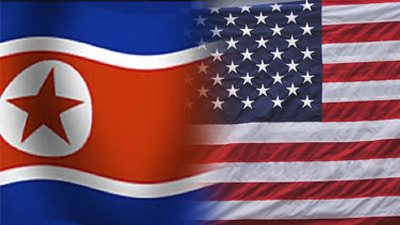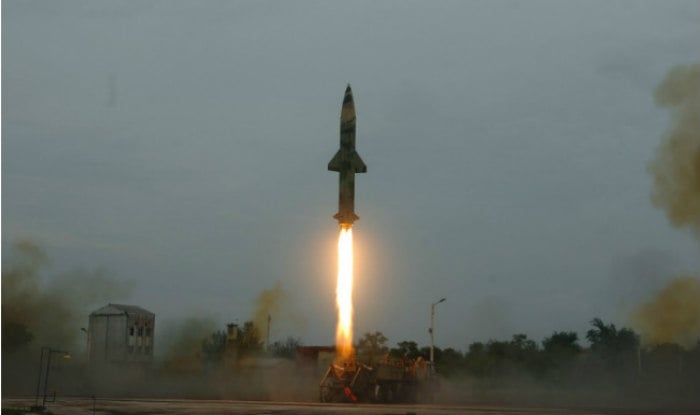North Korea’s Concern for Self-Defense. The DPRK Missile Test | Global Research - Centre for Research on Globalization
North Korea’s Concern for Self-Defense. The DPRK Missile Test
By Stephen Lendman
Global Research, May 14, 2017
Region: Middle East & North Africa, USA
Theme: Militarization and WMD
In-depth Report: NORTH KOREA, Nuclear War

North Korea’s geopolitical policies and America’s are world’s apart. Pyongyang never attacked another country, threatens none now.
America wages permanent wars, destroying one nation after another, threatening all sovereign independent countries with regime change.
Its agenda is humanity’s greatest threat. The DPRK has just cause for concern about another US launched devastating war on the Korean peninsula.
Its nuclear and ballistic missile programs are for defense, not offense, deterrents to possible US aggression.
If Washington recognized its government, normalized relations, and ended decades of hostility, Pyongyang would have no need for powerful weapons.
Instead, US policymakers since the Truman era have been confrontational with Pyongyang. Hawkish Trump administration generals risk possible nuclear war on the peninsula, madness if launched. Threats of a US nuclear attack against North Korea have been ongoing for more than sixty years.
New South Korean President Moon Jae-In is amenable to improved relations with Pyongyang, a sensible policy, the only way to defuse tensions.
Washington is strongly opposed to this idea. It’s unclear where Trump stands, saying one thing, then another, while delegating foreign policy to administration hawks, especially warmaking.
World peace hangs by a thread because of rogue elements Washington – in Congress and close to Trump, making him resemble a potted plant on major geopolitical issues, going in the directions he’s shoved.
It’s unclear if he understands the danger his lack of strong leadership on the international stage poses. Nuclear war could be launched behind his back, neocon generals and advisors informing him after the fact.

On Sunday, South Korea’s Yonyap news agency reported another Pyongyang missile test,
“believed to be a ballistic missile,” it said.
According to Japan’s Kyodo news agency,
“(t)he missile reached an altitude higher than 1,000 kilometers during its flight, raising the possibility that it was launched at a steep ‘lofted’ trajectory. Deliberately firing the missile at such an angle could allow North Korea to test its capabilities without it landing closer to Japan.”
Reportedly it covered a distance of about 700 km before splashdown in the Sea of Japan. An unnamed Japanese government source believes it could be a new type longer-range ballistic missile.
US Pacific Command spokesman Rob Shuford said its flight pattern “was not consistent with an” ICBM. It was airborne for about 30 minutes.
South Korea’s Moon called the test a “reckless provocation.” Japan’s Shinzo Abe said it was “absolutely unacceptable.”
When America and key NATO allies test powerful weapons, including nuclear ones and ICBMs, the deafening sound of silence follows, no criticism from Western capitals, other US allies, and media. The double standard is self-explanatory.
On Saturday, a White House statement called the DPRK “a flagrant menace for far too long…The United States maintains our ironclad commitment to stand with our allies in the face of the serious threat posed by North Korea” – a deplorable perversion of truth.
Washington and its rogue allies alone pose a “serious threat,” the DPRK perhaps the next target of US aggression.
Its KCNA news agency said America’s aim is “maximum pressure and engagement (to) stifle” Pyongyang, compelling it to “strengthen our nuclear deterrent (and ballistic missile capability) at maximum speed.”
Separately, Moon’s press secretary Yoon Young-chan said
“while (Seoul) remains open to the possibility of dialogue with North Korea, it is only possible when (it) shows a change in attitude.”
China’s Foreign Ministry said
“(t)he situation on the peninsula is complex and sensitive, and all relevant parties should exercise restraint and do nothing to further worsen regional tensions.”
Washington’s rage for war should give pause to all nations seeking peace and stability, unattainable as long as US belligerence continues.
Stephen Lendman lives in Chicago. He can be reached at lendmanstephen@sbcglobal.net.
His new book as editor and contributor is titled “Flashpoint in Ukraine: How the US Drive for Hegemony Risks WW III.”
http://www.claritypress.com/LendmanIII.html
Visit his blog site at sjlendman.blogspot.com.
The original source of this article is Global Research
Copyright © Stephen Lendman, Global Research, 2017
No comments:
Post a Comment